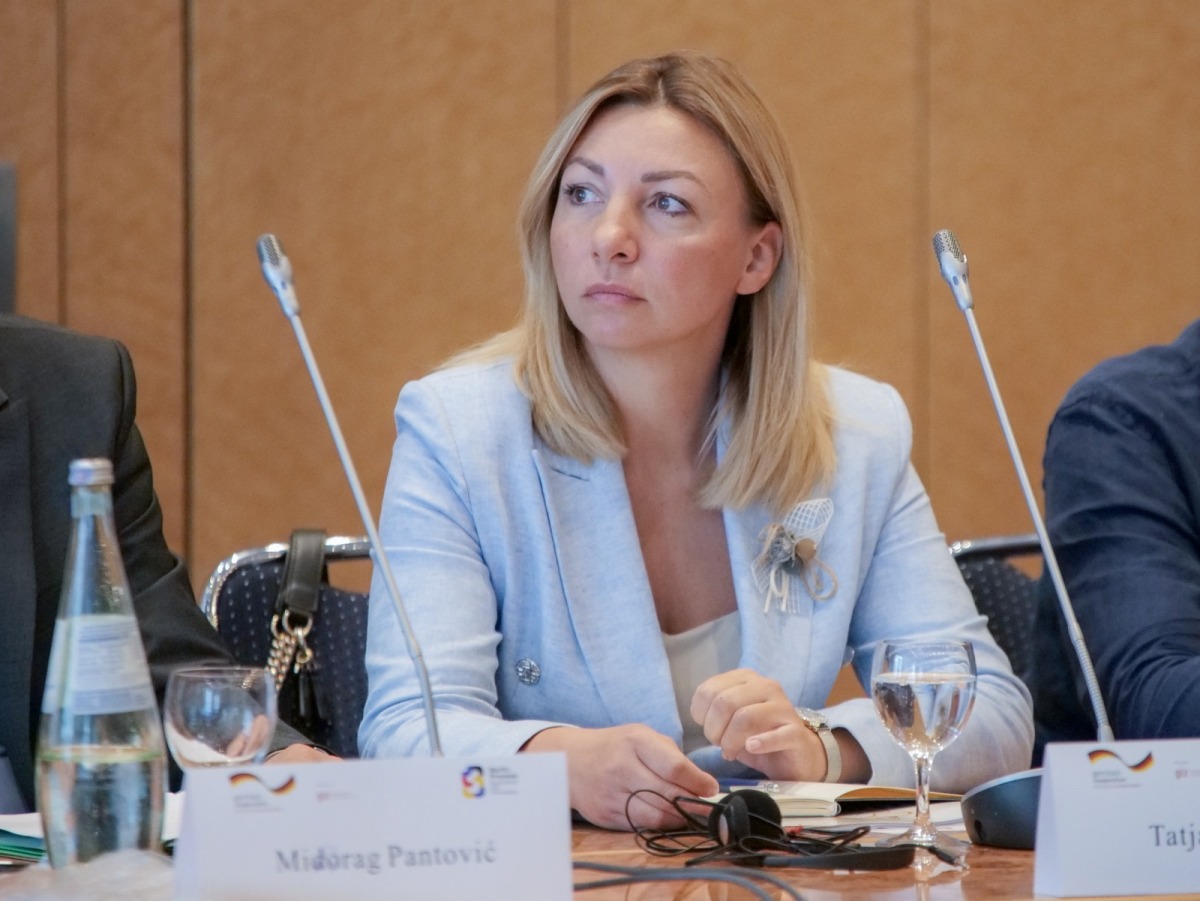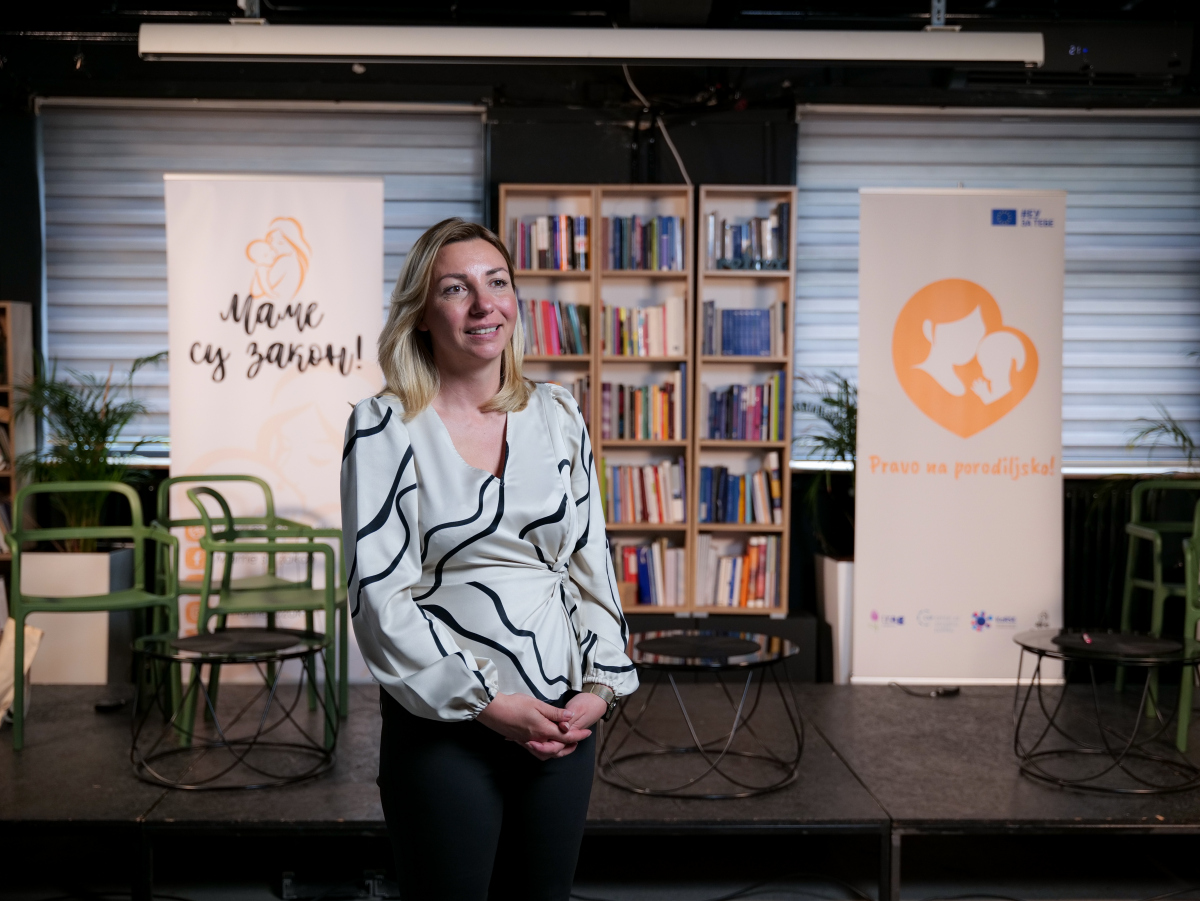Challenges and Progress on the Path to Gender Equality in Serbia
In October’s featured interview for Diplomacy&Commerce, Minister Tatjana Macura discusses the key challenges women face in Serbia and the steps being taken to achieve gender equality in politics, business, and society

How do you assess women’s role in Serbian politics and business, and what are the key challenges they face to greater participation in high-level positions?
As a woman who has one foot in politics and the other in business, with experience from both spheres, I would say that we women have already conquered and are still conquering spaces where, until recently, it was unimaginable for us to be. Although we are more active than ever in political life and highly present in business, it remains a long and thorny road, with far more obstacles than any man facing the same position. However, when we acknowledge that, despite all these obstacles, we are where we are today. The atmosphere improves when we recognise this is an exceptional achievement. We feel more motivated to remove other barriers that stand in our way towards creating a society of equal opportunities and equality.
If I had to define the challenges for us women, I would say there are three key challenges. The first is balancing private and professional life. The second is unequal treatment and opportunities in the labour market. The third is unequivocal support for female politicians who protect our interests. The solution to all three challenges is dialogue. Dialogue in society will influence a better understanding of the needs of all modern family members where both parents work. Dialogue with the business community, which, if its goal is to maintain a stable workforce, must be much more creative and keep up with the times more than many are doing today.
In comparison to international gender equality standards, where does Serbia stand? Can you provide examples of good practices from the Assembly, Government, or other institutions that can serve as models for further progress?
Serbia is the only country in the region, one of six in Europe, and one of four in the EU with a directly elected Minister for Gender Equality. That fact alone says a lot. Serbia is also above average in terms of the number of women in parliament. Currently, just over 36% of our parliamentarians are women, and although that is above the European average, we will work to increase that percentage even further.
Empowering women requires perseverance and a strong support system in both politics and business
I see an issue with women’s participation in political life: how to empower and encourage women to stay and persevere in the political arena after being elected by the citizens and how to ensure they don’t give up and continue their political activities. There is a practice where, after elections, women withdraw and hand over their positions to male colleagues. This practice and the societal atmosphere that directly or indirectly leads to this outcome must be changed. Recent years have shown that more and more women are resisting this and setting a great example for younger generations. I can’t help but mention some inspiring women beyond our borders. I’m drawn to Angela Merkel’s dialogue-oriented approach, which left an indelible mark on the region, Europe, and the international political scene. I also admire Jacinda Ardern’s empathetic approach.
What measures are you taking to ease the position of women entrepreneurs and those balancing between career and family responsibilities, especially those from the so-called “sandwich generation” who care for children and elderly family members?
I participated in preparing amendments to the Law on Financial Support for Families with Children before the latest changes, which recently came into effect. These amendments introduced the legal option for the partners of women entrepreneurs to take leave from work if their partner wishes to return to work before their baby turns one year old. For many women working in service industries—hairdressers, accountants, programmers, marketers, and others—it is crucial to keep their business running, as these types of jobs, built with great effort, cannot tolerate long “pauses.” Partner support is key in these situations. This amendment was a specific form of support for the families of women entrepreneurs who face the challenge of balancing work and parenting.

I hope my generation will be among the last in which men resist providing this kind of support. The good news is that some studies show young men are increasingly aware of how important it is to equally share household responsibilities with their partners, from maintaining the home to caring for children. And let’s be honest: this is not just about changing legal frameworks but about changing the culture and fighting against stereotypes.
What are the key steps the government is taking to strengthen institutions further in terms of prevention and protection from domestic and peer violence?
In almost every public appearance, I emphasise how important it is for individuals and organisations to collaborate with state institutions. Trust must exist, dialogue must happen to build that trust, and we must work to set aside personal egos and disagreements. There is no comprehensive solution to preventing violence that can occur anywhere other than within the framework of institutions. Our goal is to encourage women not to hesitate when it comes to reporting violence. We also aim to encourage those who are aware of someone suffering from violence to report it as well.
Peer violence is present everywhere today, and Serbia is not unique when it comes to the violence children experience or perpetrate. Last year, the Government of the Republic of Serbia and the Office for IT and e-Government fully launched the digital platform Čuvam te for reporting peer violence. This platform is a unique system primarily designed to protect the victim from having the violence covered up. Anyone can leave information, either under their full name or anonymously, about when, where, under what conditions, and how the violence occurred. The platform also provides information on how state institutions responded to the incident.
What can the state do to support further women’s economic empowerment in rural areas, where they often face greater economic and social challenges?
The state is already working on enhancing the economic empowerment of women, not only those living and working in rural areas who wish to organise their agricultural households but also those who are starting different types of small and large businesses or want to become more competitive in the labour market. The Government recognises the need for women to become economically empowered—or perhaps it is better to say financially independent—and is doing this in numerous ways. These include various support programs for the development of skills and knowledge within the National Employment Service and the Serbian Chamber of Commerce, as well as financial support through grants and favourable loans from the Ministry of Finance, the Ministry of Economy, and the Development Fund, in addition to project-based, highly incentivising activities from various ministries.
Apart from these direct investments in empowering most of our population, we are working on creating a supportive atmosphere through other legal measures. For example, we recently made further improvements to the Law on Financial Support for Families with Children, increasing the allocations for families expecting their first, second, third, or fourth child. I think it is also crucial that I have reached a high level of understanding with the current Minister of Health regarding amendments to the Health Insurance Law, which will offer more support to pregnant women entrepreneurs.
The solution to women’s challenges lies in open dialogue—with society, the business community, and ourselves—to create lasting change
Additionally, the state encourages greater participation of women in the real estate market by providing funds for the purchase of their first property. Though modest, these funds can go up to €20,000 for women and their families who, in their first year of parenthood, wish to secure a home. My office, in particular, is currently allocating most of its budget toward creating a society that does not tolerate violence, where the victims are most often women and girls. Our next planned activity focuses on supporting women’s political and economic empowerment in the community to create a society of equal opportunities jointly.
How do you see the role of the education system in promoting gender equality and preventing violence among young people? What plans are for integrating these topics into the school curriculum and teacher training?
The education system plays a crucial role in building a society that respects the rights and equality of all individuals, and violence prevention begins in the classroom. Our strategic documents already prioritise the enhancement of professionals’ capacities within the education system by integrating gender equality and violence prevention topics into the school curriculum and through the education of children, young people, and parents.

The plan is to continue implementing these topics through regular classes and extracurricular activities. This aims to empower all actors within the education system to recognise and respond effectively to potential forms of violence while promoting a culture of nonviolence and respect for the principles of equality and equal opportunities among students and staff.
What new initiatives do you plan to protect women’s human rights? Is there anything you are working on that the public may not yet know?
The world recognises that women, as well as children, are the most numerous victims of natural disasters and armed conflicts, and this is clearly outlined in the UN Security Council Resolution 1325 – Women, Peace, and Security. I believe the time has come for Serbia to raise the issue of protecting the rights of women from the Serbian and other non-Albanian communities who have experienced violence in Kosovo and Metohija, an issue that many regulations, and even the international community, to put it diplomatically, do not adequately recognise. I recently shared this initiative with Prime Minister Miloš Vučević and received support to elevate this issue to a higher level. Personally, this is extremely important to me, especially in an atmosphere where the victims of armed conflicts are either unrecognised or ignored on one side. For future generations, for the women to come, I believe it is important to institutionalise this issue. I know it will be challenging to open and lead a dialogue on this painful topic, but I will do everything in my power to ensure that our women receive the justice they deserve.
This interview was originally published in the October edition of Diplomacy&Commerce magazine, issue #99.
Interview conducted by: Dragan Nikolić
Photos by: Dejan Stanković, Private Archive